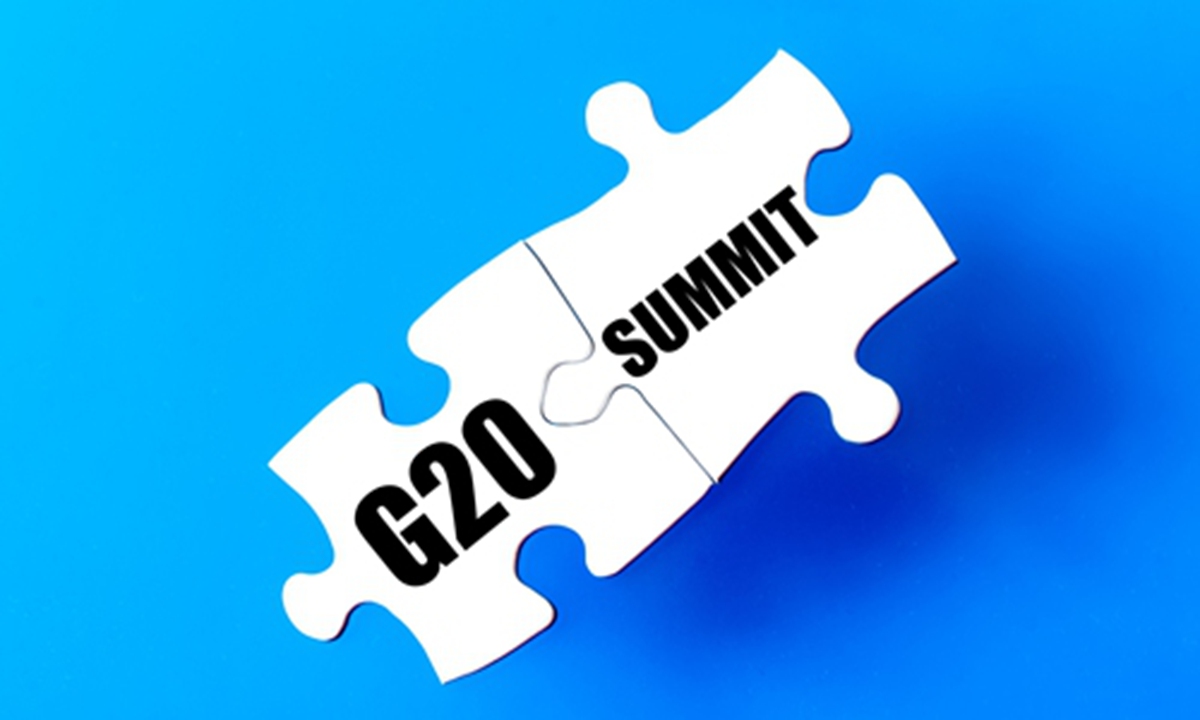
Photo: IC
Against the backdrop of the COVID-19 pandemic and a global recession, Saudi Arabia hosted the G20 summit virtually over the weekend. How to deal with the pandemic and achieve economic recovery was the key topic of the summit.
Faced with the daunting task of dealing with the fallout from COVID-19, the G20 - which has now entered its second decade - must take responsibility for transforming and upgrading itself if it is to lead a global recovery.
The G20 provides a platform for dialogue to the world's 20 largest economies and was founded by the G7 in the context of the Asian financial crisis. During its first decade, the G20 mostly functioned as a platform for member economies' finance ministers and central bank governors to communicate and coordinate monetary policies.
When the global financial crisis churned the world in 2008, the G20 held summit meetings initiated by the US, and became a major forum for international global economic cooperation. In the past decade, the G20 has reached agreements and taken action on issues from economic growth and sustainable development to structural reform, trade investments to climate change, and become the primary platform of global economic governance.
Looking forward, the G20 has the strategic opportunity to turn into a governing mechanism for global development. For starters, the next decade is the last ten years of the 2030 Agenda for Sustainable Development initiated by the UN, and G20 members are the determining factor in achieving its aims.
Secondly, the G20 could play a significant role in integrating and coordinating global development mechanisms. The development process, economy size and member numbers make it the best contender for a global development governing mechanism.
As the COVID-19 pandemic creates a global economic crisis, a multilateral mechanism is needed to address the weakness in international and global governance. Over the past two decades, since coping with the financial crisis, the G20 has turned into a forum for economic cooperation. To be able to actively cope with a crisis like the pandemic is an important opportunity for G20 to take steps toward becoming a global development governing mechanism.
These big, once-in-a-century shifts call for global cooperation. Whether the G20 is up to the task of leading that cooperation depends on the upgrading of its mechanism and agenda.
In two decades of development, the G20 has created mechanisms like the summit, minister-level meetings, business meetings and think tanks - all of which essentially constitute a platform for meetings rather than organizing. Neither does the G20 have its own secretary or staff - another indicator that its current format is not conducive to a sustainable or action-oriented style of governance.
Now, faced with the pandemic and recession, it's time the G20 agenda got an upgrade. Chief among its priorities should be to reinvigorate the economy and avoid a global economic recession turning into a global economic crisis. As a result, developed countries and emerging economies must coordinate better in terms of policies, funds and technologies.
It must also restructure its supply chain. The pandemic has caused a supply chain crisis across the globe. The G20 should incorporate global supply chain adjustment, regulation and innovation on to its agenda.
And finally, it must assist public health because the pandemic is both a challenge and an opportunity. G20 has vast room for growth when it comes to providing economic support and development.
The G20 can also use the "G20+" model to promote global cooperation with the UN, the World Health Organization, the World Bank, the International Monetary Fund and regional organizations.
The G20 itself represents multilateralism, representing 90 percent of global GDP and encompassing 66 percent of the planet's population. If the G20 can realize an upgrade of its internal mechanism and agenda, transforming economic power into governing capacity, it will do a better job of forging agreements, taking action and leading global cooperation.
The author is director of the Center for the United Nations and International Organizations of the Institute of International Studies at Fudan University. opinion@globaltimes.com.cn




